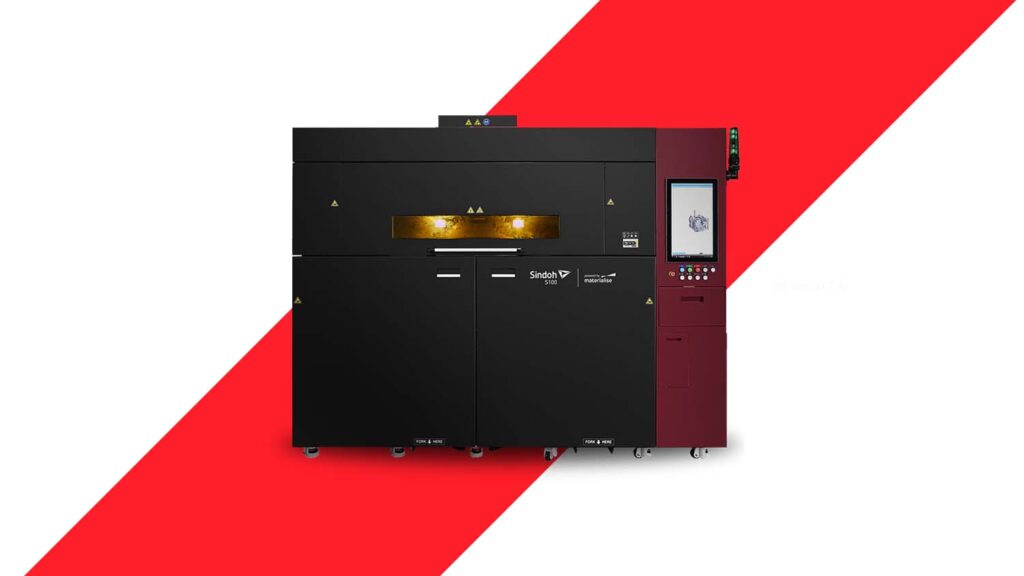The Sindoh S100 has been announced as the first SLS 3D printer to support Materialise Bluesint PA12, a which boasts up to 100% recycled powder.
First announced in November 2020, Bluesint PA12 is the result of Materialise’s research lab in Leuven, Belgium, which has been seeking a SLS material that can overcome the issues around plastic reuse.
The problem with Laser Sintering is that 3D printing with only used powder – residual powder from a previous 3D print process – creates a surface texture problem named the ‘orange peel’ effect, which makes the printed object largely unusable.
The orange peel effect is caused by shrinking that occurs when the powder cools down between two consecutive sintering processes. The existing solution is to mix used powder with fresh powder, which is clearly not sustainable.
By using a 3D printer with multiple lasers, Materialise engineers were able to use one laser for sintering the powder and a second laser to keep the powder above a certain temperature threshold. By preventing the powder from cooling down between two layers, they prevented the shrinking process that causes the orange peel effect.
The result is a printed object with similar mechanical and visual properties but printed with 100% recycled powder, drastically reducing waste.
Over the course of 2021, Materialise plans to have several SLS 3D printers running Bluesint PA12, being the first company to acquire Sindoh S100 printers, ordering five units in total.
In the start-up phase alone the company aims to re-use more than five tons of powder that would normally become waste.
The Sindoh S100 offers a build volume of 510 x 510 x 500mm and equipped with two lasers that each covers the full printing field.
Sindoh uses a flexible laser spot size thanks to the 3D axes scanning technology which makes it possible to change the spot size on-the-fly independently for each laser. Combined with the capability of working with variable layer thicknesses, the new machine is targeting very high productivity.
A processing temperature of up to 200℃ should also allow users to use wide variety of materials – such as Evonik PA12, BASF Ultrasint® PA11, TPU and PP.
Each S100 is bundled with Magics Print 25, a Materialise Build Processor and its Control Platform (MCP) while being fully compatible with Magics RP and Streamics to support industry-scale 3D print production.
“Bluesint PA12 represents a major step towards making 3D printing more sustainable,” said Materialise CEO Fried Vancraen.
“The introduction of the Sindoh S100 printer, the first to support Bluesint PA12, will help us empower our customers to make a choice for sustainability.”
Sindoh chairman Dr. Woo, Suk-Hyung, added: “Sindoh S100 has both performance and economic values through its large build volume and an unparalleled powder recycling rate.
“This new product also demonstrates the excellent synergy of Materialise Software and the 60 years of hardware manufacturing experience of Sindoh. Combining the latest technologies of both companies, it enables significant reduction in production cost as well as excellent printing performance.”






